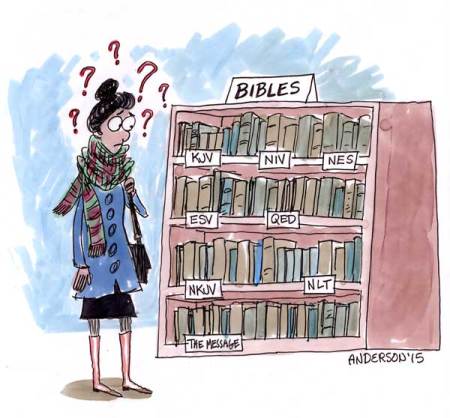Scripture: A Moral Decision for Everything?

Christians are people of the Book. Conservative Evangelical Christians, in particular, demand that their beliefs and lives be governed by Scripture.
Yet what, exactly, that means is not always clear, particularly when dealing with matters of Christian living.
On the one hand, some Christians believe that the Bible is an exhaustive list of prescriptions and prohibitions that reveal how God wants His children to live. If the Bible doesn't address something explicitly, then God doesn't care about that particular issue, and Christians are free to make their own decisions based on preference. No Christian may speak authoritatively in an area not directly addressed in Scripture.
Other Christians believe that the Bible is sufficient and authoritative for everything in a Christian's life, not only those issues Scripture explicitly addresses. When faced with a decision not found in a chapter and verse, these Christians will insist that God nevertheless cares about that decision, and it is the Christian's responsibility to actively apply Biblical principles to contemporary situations in order to do the will of the Lord. Furthermore, they insist that such applications are authoritative to the degree that they are reasonable applications.
The debate centers primarily around what the "sufficiency" of Scripture means, perhaps best rooted in 2 Timothy 3:16–17:
All Scripture is breathed out by God and profitable for teaching, for reproof, for correction and for training in righteousness, that the man of God may be complete, equipped for every good work.
The question is, what does "complete, equipped for every good work" mean? Does it mean that the Bible explicitly addresses every single issue that is important to God, or does it mean that the Bible speaks principally to everything, even those issues not explicitly addressed?
I believe that the sufficiency of Scripture means the latter, for at least three reasons:
First, the Bible itself teaches this view. For example, vice lists in Scripture such as that found in Galatians 5:19–21 are not meant to be exhaustive, but indicate that there are other "things like these" that a Christian will need to deduce for himself. Furthermore, the Bible describes a mature Christian as one who is able to "discern what is the will of God, what is good and acceptable and perfect" (Romans 12:2) even when the Bible doesn't say, and who has his "powers of discernment trained by constant practice to distinguish good from evil" (Hebrews 5:14).
Second, theologians have historically taught this view. For example, the historic confessions indicate that God's will for his people is either "expressly set down in Scripture, or by good and necessary consequence may be deduced from Scripture."
Finally, common sense necessitates this view. Where in Scripture, for example, does God explicitly address safe driving, healthy living, abortion or recreational marijuana use? Nowhere. And yet most Christians will recognize that the Bible speaks to these contemporary decisions through broader principles that they are required to actively apply.
God has a moral will for every decision we make, and it is our responsibility to study the Scriptures, deduce principles therein, and actively apply them to everything we do.
For Further Reading:
Sound Worship, Chapter 2: "Is the Bible Enough?
Sola Scriptura arguments should be put to rest
What Sola Scriptura means, and what it does not mean
Piper on the Sufficiency of Scripture
Scott Aniol, PhD, is an author, speaker, and teacher of culture, worship, aesthetics, and church ministry philosophy. He is chair of the Worship Ministry Department at Southwestern Baptist Theological Seminary. He founded Religious Affections Ministries and has written several books, the most recent being By the Waters of Babylon: Worship in a Post-Christian Culture. He can be found on Twitter @ScottAniol.




















